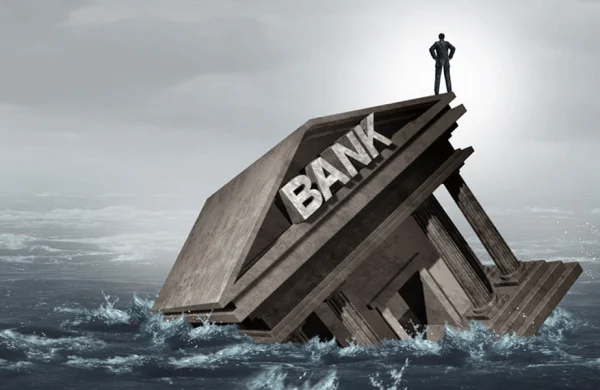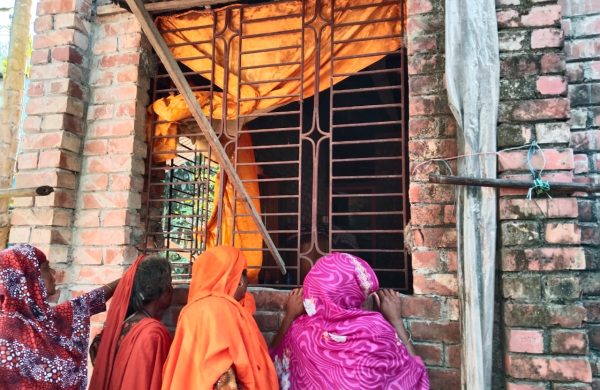10 banks on the brink of sinking, 10 business groups face the heat
- Update Time : Wednesday, January 1, 2025

► Media trials underway to destroy banks and industries
► No proper initiatives for recovering bad loans
TDS Desk:
Ten banks in the country are facing a severe crisis, driven by collusion among bank directors, top executives, nepotism, corruption, politically motivated decisions, and “media trials,” all of which have facilitated large-scale embezzlement. Together, these 10 banks and the broader banking sector have disbursed loans totaling Tk 2.34 trillion (2 lakh 34 thousand crore) to 760 directors. With much of these loans remaining unpaid, non-performing loans in the banking sector have surged to Tk 2.85 trillion. To keep these struggling banks afloat, approximately Tk 30 billion in additional loans has been injected.
On the other hand, the top 10 industrial groups in the country have been targeted for loan recovery. However, instead of adopting strategies to sustain industries while recovering funds, extreme pressure is being applied rapidly.
Experts have pointed out that while the central bank has temporarily provided financial assistance to the struggling banks by borrowing from more stable banks, efforts are being made to shut down the 10 industrial groups that are actively engaged in production, investment, and employment creation. Continued malicious campaigns or “media trials” against struggling banks and these top groups are making their positions even more precarious, potentially impacting the economy and trade negatively.
Insights from an analysis of Bangladesh Bank’s data and discussions with experts paint a grim picture. Since the fall of the Awami government during a public uprising, the banking sector has been in crisis, with the 10 banks being hit the hardest. Analysts identify key reasons behind this crisis:
►Anonymous loans through irregularities
►Family dominance in loan disbursement decisions
►Targeted “media trials” by certain media outlets
►Loan funds being laundered abroad instead of being invested
►Politically motivated loan approvals
►Collusion and corruption among top bank officials
►Misuse of banking laws to allow rescheduling of loans for up to 29 years with just 2% down payment
►Granting new loans to repay old ones
►Labeling banks as “bankrupt” without taking effective measures to restore confidence
These factors have made it difficult for banks to survive. Although the interim government has taken steps to strengthen the banks, the benefits are yet to materialize.
Banks have already been injected with Tk22.5 billion through printed money, along with Tk7.35 billion in liquidity support. This aid may help them survive for the next six months, but experts believe the crisis will deepen if loans are not recovered.
To recover the loans, banks have targeted the top 10 industrial groups, with discussions about appointing “receivers” to manage their businesses. However, questions have arisen about the legality of appointing receivers without court orders. For instance, Beximco Group has already been placed under receivership by court order, leading to negative consequences: 18 entities have shut down, and nearly 50,000 employees have lost their jobs.
Similar restrictive measures, such as freezing bank accounts, are being considered for other groups. Experts warn that trying to extract money by pressuring these groups could backfire, further destabilizing them and hindering recovery efforts.
Central bank sources reveal that struggling banks have received substantial loans by borrowing from more stable ones, with a promise of gradual repayment. However, data suggests that these banks are failing to repay the borrowed amounts, prompting extensions for repayment deadlines.
So far, 7 banks have received liquidity support totaling Tk7.35 billion, with Islami Bank Bangladesh receiving the largest amount (Tk2.395 billion), followed by Social Islami Bank (Tk1.175 billion), First Security Islami Bank (Tk1 billion BDT), Union Bank (Tk400 million), Global Islami Bank (Tk295 million), National Bank (Tk920 million), and Exim Bank (Tk700 million). Despite these guarantees, the crisis persists.
Industrial groups that have defaulted on loans need to be held accountable. However, these groups employ millions of workers and contribute to production. Immediate aggressive recovery efforts threaten to shut them down. For instance, Beximco Group’s closure has already led to protests, with workers staging road blockades to demand re-opening and payment of dues. Experts warn that applying the same approach to other groups will cause more harm than good.
Meanwhile, accusations of targeted “media trials” against top groups have surfaced against certain media outlets. These outlets have reportedly focused less on constructive solutions for the 10 banks and more on spreading malicious campaigns. This has eroded public trust in the banks, leading to a rush of depositors withdrawing their money, thereby exacerbating the liquidity crisis.
Experts believe that after dismantling 10 banks, there is a blueprint to destroy 10 leading business groups. The country’s export market is already under threat, with foreign orders shifting to neighboring countries. Allegations suggest that this conspiracy is being orchestrated strategically to destroy the private sector and industries, forcing investments and jobs to migrate abroad, weakening the economy. Certain self-serving media outlets are allegedly being used to facilitate this agenda.















